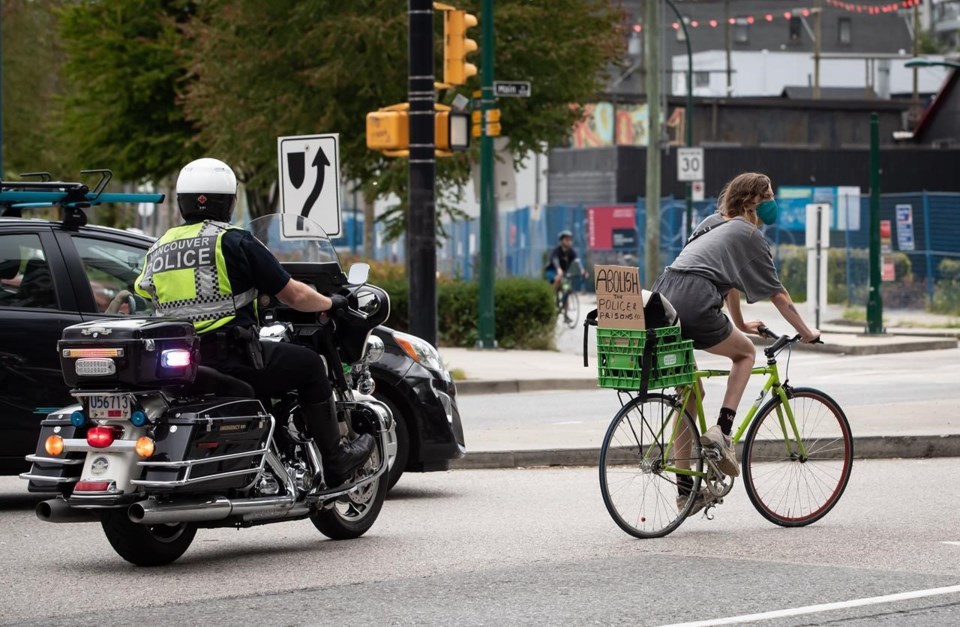VANCOUVER — Councillors in Vancouver have voted unanimously to ban officers from conducting street checks, the process of arbitrarily demanding and recording identification, outside of a police investigation.
Mayor Kennedy Stewart praised the outcome of the vote in a social media statement late Wednesday, thanking dozens of speakers who offered their opinions on his motion.
Stewart says street checks disproportionately affect people of colour and the city's Black and Indigenous residents.
He has said it is up to the Vancouver Police Board to direct an end to street checks because even though he chairs the board he does not vote, except to break ties, and cannot move board motions.
In his twitter message, the mayor says the board is preparing to consider its own motion to review street checks.
A decision could be made by September.
Police data from 2017 shows Indigenous people make up two per cent of Vancouver's population but are subject to 16 per cent of the checks, while Blacks are targeted five per cent of the time but represent just one per cent of city residents.
Vancouver's data also shows city police conducted 100,000 street checks between 2008 and 2017.
When new provincial guidelines were introduced in January, there was a 91 per cent reduction in street checks, the department reported.
The department says it has brought its street checks policy in line with those guidelines.
"Street checks are a valuable proactive crime prevention tool for police, even though they are used infrequently," Sgt. Aaron Roed said in an email on June 25.
The new policy describes street checks as voluntary and says officers should not stop someone simply because they share an "identity factor," such as race or economic status, with a person being sought by police.
"A street check only occurs when a police officer encounters someone believed to be involved in criminal activity or a suspicious circumstance and documents the interaction. They are not random or arbitrary," Roed said.
Victoria city councillors unanimously approved a motion last Thursday urging police in the capital to end street checks.
Ontario introduced rules in 2017 to ban the checks in certain situations while Nova Scotia announced last year that it would halt the practice after a review ruled such checks are illegal.
Earlier this month, Montreal police revised their street check policy to require officers to give reasons for a check to the person they are stopping, but critics have argued the change won't stop racial profiling.
This report by The Canadian Press was first published July 23, 2020.
The Canadian Press




